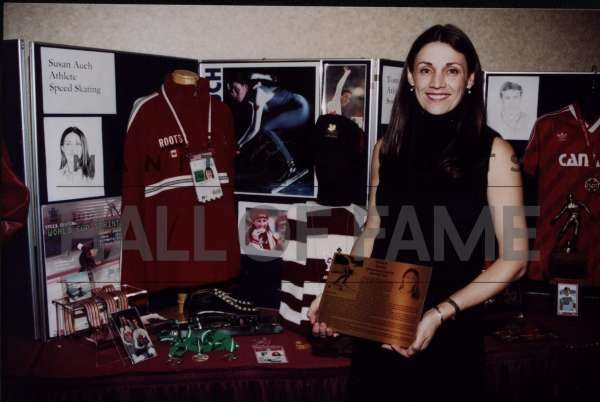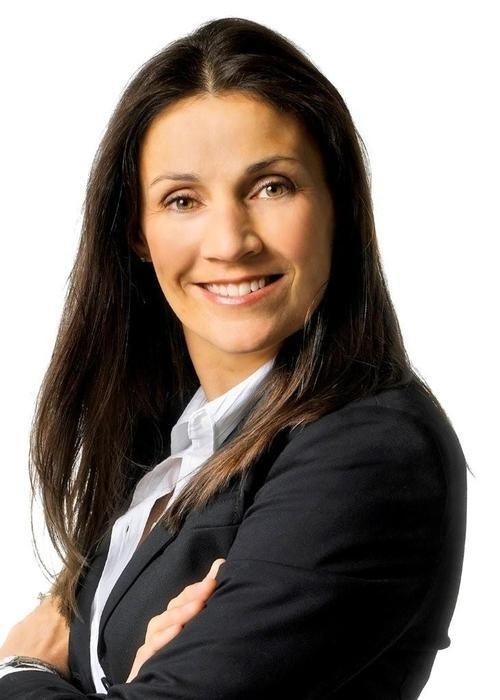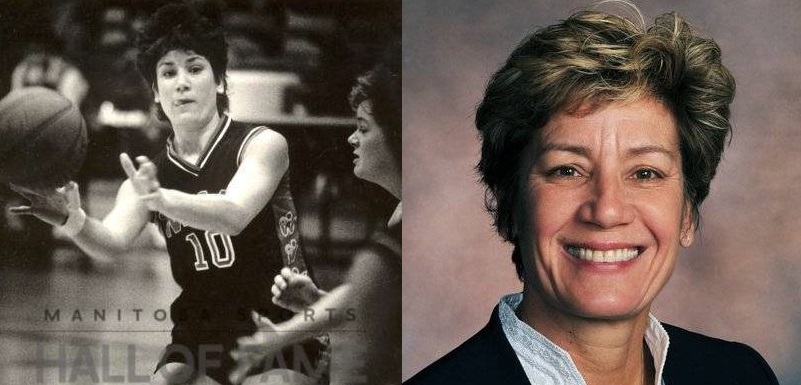So who is your all time favorite female Manitoban athlete? Jennifer Jones and her record six Canadian Women’s Curling titles? Maybe it’s Cindy Klassen and her record six Olympic Winter Games Medals. Or perhaps the number one name on that list is speedskater and cyclist Clara Hughes. The only athlete ever, to win multiple medals in both the Winter and Summer Games.

There are many more deserving candidates, so it’s not an easy question to answer. And that is a very good thing.
But once that final game has been won, that last race has been run, and the swan song event is done- what then?
READ FULL SERIES: Shattering glass: Winnipeg’s Women
Cindy Klassen is now a police officer in Calgary. Clara Hughes is doing wonderful things to keep the conversation going about mental health. And later this month Jennifer Jones will try to add a second World Women’s Curling title to her already impressive resume.
But do all female athletes have a “career” after their playing days are over? And do they face the same challenges other women have, or will?
WATCH: Six-time Olympic medalist Cindy Klassen announces retirement from speedskating
Susan Auch competed in five Olympic Games, won a pair of Silver Medals, and is a member of several Sports Hall of Fames. Including induction into the Canadian Sports Hall of Fame in 2015. Susan went on to become a successful mortage broker in her second home of Calgary but has since returned to Winnipeg- and to her sport- as the recently appointed Interim CEO of Speedskating Canada.

“Not only am I a representative of Females, going from being an athlete to being a CEO of an organization that I put my whole life into. But I’m a former athlete. And that’s pretty rare, having former athletes- high level athletes, Olympic medalists- come back into Sport and work in the sport at a very high level. That hasn’t happened a lot, and part of that is we’re not invited.”
And Auch says she’s lucky to be working in an industry where Female Cheif Executive Officers are not only the norm- but are willingly embraced by male heads of National Sports Organizations.
“I think, though, this is not a typical area in the business world because it’s pretty mixed. There are men and women at the table as CEO’s of the various sports,” Auch said.

“Two of the most powerful sports in Canada- figure skating and curling- are both run by women. Very, very strong women. I look at them and it gives me more confidence. I see them taking leadership roles in different things and that, I think, has to happen. But in our area, men are used to supporting women. It benefits them in their roles as NSO (National Sports Organization) leaders to have as many women and girls in their sports- equal to boys and men in their sports- so it makes a big difference.
Most of us have seen the recent MacLean’s Magazine where men are being asked to pay 26 per cent more to reflect the average pay inequity with their female counterparts. But Susan Auch doesn’t seem like she’ll settle for anything less than what she is worth.
“I may not be looked at the same as the average woman going into a job either, because most of my positions have been because of what I did in my sport,” she explains. “And in my current job as CEO- Speedskating Canada, I knew what the previous CEO made and I’m treated fairly. I have not had that experience (of pay inequity). I do know that it’s the case though, in most high level jobs.”
WATCH: Why the wage gap in women’s sports?

Jill Mathez hasn’t won any Olympic Medals, but she has won National Championships in Canadian University Basketball with the University of Winnipeg Wesmen. And in Sr. Women’s Softball with Smitty’s Terminators. And like Susan Auch, she too has enjoyed success in her post-athletic career.
“As a teacher and as an administrator of course, we were bound by a collective bargaining agreement. But you know, I’d have to say I did have to advocate in a previous employment opportunity, where I did become an Administrator,” she said.
“But thankfully I was heard and and there was recognition given in that regard. But I really believe we still have a ways to go. Hopefully folks like myself and an employer like Louis Riel School Division are kind of paving the road for all of those youngsters that we’re working with every day in our schools. And that doesn’t become a concern for them and there is some change.”

The first ever Female Inductee into the Manitoba Hockey Hall of Fame is now going into her eigth year as principal at Dakota Collegiate.
“Louis Riel School Division have made a deliberate decision to put females in the roles of High School Principals. Dakota, Glenlawn, J.H. Bruns currently have female principals. Similarly in positions within our elementary school system there are individuals that are responsible for programs in larger schools. And then at the senior administration level there are three female assistant superintendents. That sends a strong message to our community which is very important. That in fact, women can do these jobs very well, if not better at times than our male counterparts.”
But as we know through the #MeToo and #TimesUp movements- there is a long way to go before there is a level playing field. Although both of these women agree- the country we live in has a distinct advantage.
“I speak at schools and I tell girls this all the time,” says Auch. “That children and girls are in the luckiest place in the world for them to thrive.”
And Mathez adds, “I hope every day when I’m at work that kids see me in my role and know that it is possible. No matter where you come from, what you look like, or what language you speak- if you live in Canada- the world is a pretty good place.”










Comments